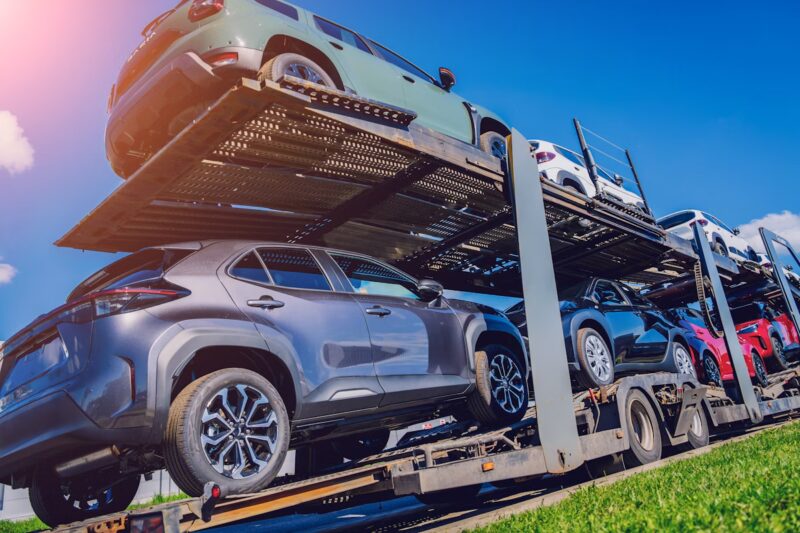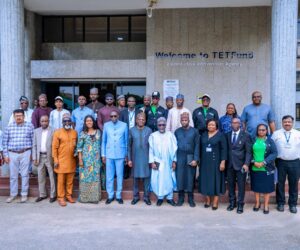Imagine a busy car dealership eagerly awaiting new inventory, or a buyer in Lagos tracking a vehicle purchased from a U.S. auto auction. In both cases, success depends on one critical link: getting those cars from point A to point B quickly and safely. In the United States, that link is often a car hauler dispatch service – the behind-the-scenes coordinator that makes sure vehicles keep moving.
These dispatchers match trucks with loads of cars, plan optimal routes, and juggle schedules so that vehicle transport runs like clockwork. It’s a system of logistics efficiency honed over decades, and its impact is felt from American dealerships and auctions all the way to shipping ports. As Nigeria’s auto import market surges (over $518 million worth of vehicles and parts were imported from the U.S. in the first half of 2025 alone), there’s a growing relevance in applying these lessons locally. This article dives into how U.S. auto logistics stays efficient through dispatch services, and what it could mean for Nigeria’s vehicle transport and auto trade.
The Engine Behind Auto Logistics: What Is a Car Hauler Dispatch Service?
SPONSOR AD
In simple terms, a car hauler dispatcher is like an air traffic controller for car carriers. Instead of planes, they guide trucks and trailers loaded with cars. Dispatchers find and dispatch loads (vehicles that need transporting), assign them to drivers, and coordinate the pickups and drop-offs. The goal is to keep trucks full, drivers busy, and customers happy – in other words, to maximize logistics efficiency. As one industry guide explains, car hauling dispatch means finding and booking loads and scheduling them so the driver spends more time driving loaded and less time waiting around. A dedicated car hauler dispatcherhandles the “back office” planning – checking load boards, negotiating with brokers or dealers, handling paperwork – so that the truck operator can focus on driving safely.
Why is this so important? Because time is money in trucking. Every hour a car carrier sits idle or drives empty (what truckers call “deadhead” miles) is an hour of lost revenue. Efficient dispatching tackles this problem head-on. It’s common, for example, for a dispatcher to plan a route where a driver picks up multiple vehicles from different locations to fill the trailer, then charts a return trip with another load waiting, ensuring minimal empty return miles. In fact, mastering dispatch – whether doing it yourself or hiring a service – is fundamental to a successful car hauling operation. The best truck and driving skills won’t matter if you can’t find the next load and end up spending half the week parked with no cars to haul. That’s why many owner-operators either become load-hunting experts or team up with a car hauler dispatcher to keep their schedule full. It’s an investment in logistics efficiency: a great dispatcher can have you almost always hauling a full load instead of zigzagging across the country empty.
Logistics Efficiency in Action: How Dispatch Keeps U.S. Auto Transport Moving
To appreciate the impact of dispatchers, consider how auto logistics works in the U.S. on a typical day. Thousands of vehicles are constantly in transit – new cars moving from factories or ports to dealerships, used cars shifting from auctions to buyers, rental fleets being rotated, and so on. Car hauler dispatch services act as the central nervous system coordinating these movements. They communicate with car dealers, auction houses, brokers, and drivers to ensure every leg of the journey is covered. Contracts often formalize these partnerships: dealerships, auto auctions, manufacturers, and even port agents all rely on agreements with carriers (the truck companies) to move vehicles where they need to go. In effect, dispatchers connect the dots between those who need vehicles transported and those who haul them, keeping the supply chain running smoothly.
Dealerships and Auctions: Many auto dealers in the U.S. need vehicles moved regularly – think of new models coming in, dealer trade swaps, auction purchases, or customer deliveries. For example, a local used-car dealer might buy a batch of cars at an auction in another state every week. A reliable carrier or dispatch arrangement ensures those cars arrive on the lot quickly for resale. Car hauler dispatchers help by finding available trucks at the right time and place to haul these vehicles. They also plan multi-stop routes: a single truck might pick up several auction purchases and then drop different units at multiple dealerships. This maximizes truck capacity and cuts cost. (Industry data backs this up: shipping one car alone might cost around $0.66 per mile, but bundling six vehicles on one truck can drop it to about $0.49 per mile – a 26% savings per vehicle. That kind of efficiency is only achieved by careful load planning and route optimization.) By keeping trucks fully loaded, dispatchers improve logistics efficiency and save money for shippers and carriers alike.
Ports and Shipping: Dispatch coordination is equally critical when moving cars to and from ports. In the U.S., vehicles often travel long distances from auctions or factories to seaports for export. Timing is everything – a missed ship loading window could mean a car sits at the port for days or weeks. Good dispatchers plan for this by scheduling trucks well in advance and using technology for route planning and tracking. According to auto transport experts, carriers use advanced dispatch software to map out the most efficient routes and schedule pick-ups/drop-offs dynamically, adjusting in real time to avoid delays. For instance, if an auction in Arizona sells cars to international buyers, a dispatcher might coordinate a carrier to collect those vehicles and deliver them to the Port of Los Angeles right on schedule for the departing vessel. They’ll factor in weigh station stops, driver hours, and port appointment slots to ensure nothing falls through the cracks. It truly takes a logistics efficiency mindset – backed by tools like GPS tracking, digital load boards, and electronic document systems – to meet the strict deadlines of port operations. The payoff is huge: vehicles get on the ship in time (or off the ship to dealers quickly), storage fees are avoided, and the entire market keeps moving without bottlenecks.
It’s worth noting that U.S. dispatchers also emphasize communication and contingency planning as part of efficient vehicle transport. If a driver is running late to a dealership or if there’s a sudden schedule change, a dispatcher will inform the broker or receiving party and reschedule if needed. This level of coordination prevents small hiccups from becoming big problems. Missing a 4 PM closing time at a dealership, for example, might mean an overnight delay in delivery – a good dispatcher works to prevent that by building in time buffers and monitoring traffic or weather conditions. In short, dispatch services are constantly managing the puzzle pieces of people, trucks, and cars to reduce downtime. Little wonder that truckers often say efficient dispatch is worth its weight in gold – it keeps revenue flowing and wheels turning
The U.S. Experience: Supporting a Huge Auto Market
The effectiveness of car hauler dispatch service in the U.S. is a big reason why Americans rarely experience empty car lots or delayed vehicle deliveries. Consider that tens of millions of cars are sold in the U.S. each year, and virtually every one of them takes a ride on a truck at some point. Auto logistics networks handle this volume by staying efficient and flexible. Load boards like Central Dispatch or Super Dispatch list thousands of available car shipments daily, and dispatchers use these platforms to keep carriers loaded and moving. The result is an interconnected system where a car can be picked up in one corner of the country and delivered to another within days. Dealerships benefit by having a steady flow of inventory; auctions clear their lots quickly for new sales; and ports avoid backlogs of vehicles waiting for transport. In essence, car hauler dispatch services help orchestrate the just-in-time delivery of autos, which keeps the market fluid and responsive.
We discussed the logistics efficiency of vehicle transportation with David Kartsotyants, a Senior dispatcher in a prominent USA truck dispatching company, Dispatch Republic. As per David, one example is how dealerships and rental car companies managed during vehicle shortages: they leveraged dispatchers to quickly reposition vehicles from areas of low demand to high demand. If one region had excess inventory, dispatch-coordinated carriers would redistribute those cars to regions where dealerships were waiting for stock. This agility, powered by dispatch planning, underscores the logistics efficiency of the system.
Another example is disaster response: when hurricanes or floods strike, vehicles often need to be relocated or brought in for recovery efforts. U.S. dispatch services have proven capable of quickly re-routing carriers to affected areas once conditions allow, helping rebound the flow of vehicles within days. Such responsiveness comes from having a dispatch infrastructure that can adapt and mobilize trucks where needed on short notice. All these scenarios highlight that without efficient dispatch, the wheels of the auto industry would literally grind to a halt.
Lessons for Nigeria’s Growing Auto Import Market
What do these U.S. dispatch and auto logistics practices mean for Nigeria? In a word: opportunity. Nigeria’s appetite for cars is large and growing. In 2025, Nigeria is on pace to import over $1 billion worth of vehicles from the United States alone. That represents tens of thousands of cars (mostly used) coming through ports like Lagos’s Tin Can and Apapa. Each of those cars needs to travel from the port to a final destination – whether to a dealership in Ikeja, a buyer in Abuja, or a fleet operator in Kano. Right now, that journey can be fraught with delays: port congestion, arranging local transport on the fly, and sometimes vehicles sitting for days awaiting pickup. This is where adopting a car hauler dispatch service model could transform the game.
Nigeria has already taken a significant step toward better logistics efficiency at the ports with the introduction of the Ètò electronic call-up system. This system (run by a private tech firm in partnership with the government) schedules trucks’ access to the port, replacing the old chaos of thousands of unscheduled lorries clogging the roads. Since its launch in 2021, the Ètò system has scheduled over 3 million truck trips, drastically reducing gridlock around Lagos ports. In the past, trucks could wait two to three weeks just to enter the port and load cargo; now, those wait times have been drastically reduced thanks to digital dispatching of trucks. It’s a clear example of how dispatch and scheduling technology improve logistics efficiency on a large scale. As the Managing Director of Truck Transit Parks (the firm behind Ètò) put it, this is a “transparent, predictable, and technology-enabled process” that has transformed port logistics. The ripple effect is huge – faster port clearance means imported goods (including cars) get to market quicker and at lower cost.
Building on this progress, Nigeria’s auto sector can borrow more pages from the U.S. playbook. For instance, dealerships and importers could collaborate with local trucking companies to create a dedicated vehicle transport dispatch system. Instead of arranging car pickups ad hoc, a centralized dispatch service (or even a simple digital platform) could match incoming batches of imported cars with available car carriers for onward delivery up-country. This would ensure that when a container or RoRo vessel offloads vehicles, trucks are queued and ready to move them out immediately – much like how it’s done in U.S. ports. The benefits would be less port storage congestion, quicker turnaround for ships, and fresher inventory at Nigerian dealerships. It also means drivers and fleet managers could count on more consistent work hauling vehicles, rather than the current situation where some may drive empty on return trips due to lack of coordination.
Real-world scenario: Imagine 50 used sedans arriving at Lagos port from the U.S. on a given week. With efficient dispatch, those cars could be grouped by destination region and loaded onto multi-car trailers the same day they clear customs – 10 heading to buyers in Lagos and Ibadan, 15 bound for dealers in the North, another dozen destined for Accra (transiting through Nigeria), and so on. Each truck would run full, and with proper routing and timing, all vehicles would reach their owners or showrooms within a few days. Now imagine the opposite: no dispatch system. Those 50 cars might trickle out of the port one small truckload at a time over several weeks, some sitting and accruing storage fees, others potentially delayed by paperwork mix-ups. The difference in outcome is stark, and it directly affects costs and customer satisfaction.
To be fair, Nigeria’s infrastructure and market dynamics are different from the U.S. Longer transit times upcountry, fewer large car-carrier trucks in operation, and other challenges exist. However, the core principle remains: logistics efficiency is key. The country’s ongoing efforts to upgrade roads and enforce better regulations (like standardized haulage fees and weight limits) will support this. Additionally, the private sector is already moving in this direction. There are emerging Nigerian companies offering specialized vehicle transport and car delivery services from ports to cities, much like mini “dispatch” firms. They coordinate with car importers and even individual buyers to handle everything from port pickup, documentation, to door-step delivery. The growth of these services shows a demand for more organized car hauling. For the industry, embracing a car hauler dispatch service model—either through a dedicated company or a cooperative platform—could mean higher profits and reliability. Fewer empty back-hauls (since trucks can find return loads), more predictable delivery times, and better overall planning are within reach.
Practical Tips for Efficient Vehicle Transport Dispatch
Whether you’re a truck owner-operator in the U.S. or managing a fleet in Nigeria, certain best practices can dramatically improve your logistics efficiency when hauling cars. Here are a few expert tips to keep your vehicle transport operations running smoothly:
- Maximize Load Capacity: Always aim to haul a full trailer of vehicles whenever possible. If you have space, coordinate to pick up additional cars along your route. Hauling multiple units in one trip is more profitable and cost-efficient – remember that example from the U.S. where a six-car load cut per-car costs by over 25% compared to a single-car haul. A good car hauler dispatch service will help cluster pickups so you’re not moving half-empty.
- Optimize Routes and Schedules: Plan your routes strategically and use technology if available. Group deliveries by geography and be mindful of operating hours at dealerships, auctions, or ports. Missing a narrow delivery window can mean costly delays, so build in time buffers. Experienced dispatchers often use mapping software to avoid bottlenecks and ensure drivers arrive during working hours. Simply put, smart route planning equals higher logistics efficiency and less stress.
- Leverage Load Boards & Networks: In the U.S., many truckers find vehicle loads through online load boards (like Central Dispatch) or dispatch services that tap into vast broker networks. Nigerian carriers can similarly benefit by networking with auto dealers, importers, and even freight platforms. The more connected you are, the easier it is to find return loads or fill gaps in your schedule. Building relationships with companies that regularly need vehicle transport (e.g. car dealers, rental agencies, corporate fleets) can lead to steady, contracted work.
- Communication is Key: “Keep all parties informed,” says David Kartsotyants from Dispatch Republic. If you’re delayed or if plans change, communicate immediately with customers or dispatch coordinators. In a well-dispatched system, the dispatcher will handle these updates for you – but if you’re on your own, it’s your responsibility. Prompt communication prevents minor issues from snowballing. It also builds trust; dealers or shippers are far more forgiving of delays when they know what’s going on. Being proactive and transparent is part of professional dispatch culture in the U.S., and it’s just as valuable in Nigeria’s context.
By following these practices, drivers and fleet managers can significantly enhance their operation’s efficiency and profitability. It’s about working smarter: using every tool and partnership available to keep those wheels turning with purpose.
Conclusion: Driving Forward with Dispatch Efficiency
The story of U.S. auto logistics shows that behind every smoothly delivered car, there’s likely a skilled dispatcher (or dispatch system) making it happen. Car hauler dispatch services have proven their worth by keeping trucks loaded, trips optimized, and cars flowing from factories and ports to driveways and showrooms. This kind of logistics efficiency isn’t just a luxury – it’s become a necessity in a competitive market where downtime means lost revenue and delayed sales. As Nigeria’s automotive sector expands, adopting these principles can be a game-changer. Imagine a future where importing a car to Nigeria is a seamless experience: the moment the vehicle is off the ship, a well-coordinated truck is ready to bring it to your city, and every step is tracked and managed for speed and safety. That’s the promise of efficient vehicle transport logistics.
For Nigeria, bridging the gap will involve investment in both technology and people. Training dispatch professionals, deploying software for route optimization and load matching, and encouraging collaboration between importers and transporters are all part of the equation. The early results – like the success of the electronic truck call-up at Lagos ports – are encouraging, showing that even long-standing challenges can be overcome with smart logistics planning. Ultimately, when logistics efficiency improves, everyone wins: truckers earn more with steady loads, businesses cut costs, and consumers get their vehicles faster.
The road ahead is clear. By learning from the U.S. dispatch model and tailoring it to local needs, Nigeria’s auto industry can keep its market moving and growing. It’s a journey of innovation and adaptation. And much like a well-dispatched transport run, with the right coordination, it’s a journey that can run on schedule and deliver results beyond expectations.








